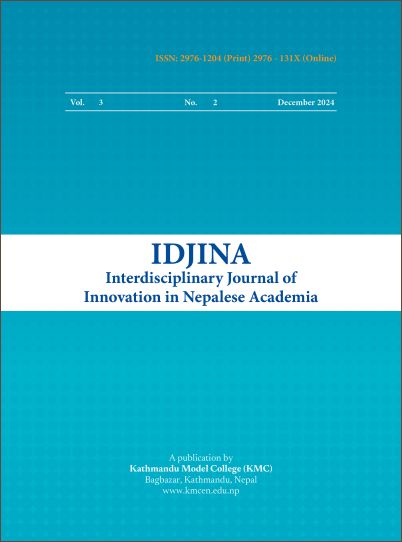Effect of Occupational Stress on Turnover Intentions Among Young Employees in Nepalese Commercial Banks
Keywords:
Cognitive dissonance, consumer-organization identification, graduate students, perceived service quality, university choiceAbstract
Occupational stress in the banking sector, particularly among younger employees, contributes to turnover intentions, challenging employee retention and organizational productivity. This study, based on the Job Demand-Control model and Social Exchange Theory, examines the impact of occupational stress on turnover intentions among young employees in Nepalese commercial banks. It also examined the impact of different demographic profiles, including gender, age group, work experiences, and responsibility level on turnover intention. It also analyzes demographic factors, including gender, age, work experience, and responsibility level. Data were collected from 357 managerial and operational-level employees across ten banks selected using purposive sampling, including the top five and bottom five performers. SPSS version 23.0 was used for data analysis. Regression analysis revealed that workload, role ambiguity, and poor working conditions significantly increased turnover intentions, while supervisor support reduced them. Demographic analysis showed higher turnover intentions among younger employees, males, mid-career professionals, and operational staff. To address turnover, banks should clarify roles, manage workloads, enhance supervisor support through mentorship, improve working conditions, and tailor career development and stress management programs to demographic needs.
Downloads
Downloads
Published
How to Cite
Issue
Section
License

This work is licensed under a Creative Commons Attribution-NonCommercial-NoDerivatives 4.0 International License.
This license allows reusers to copy and distribute the material in any medium or format in unadapted form only, for noncommercial purposes only, and only so long as attribution is given to the creator.




